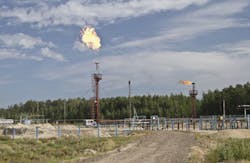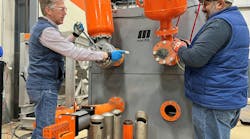The North Dakota Industrial Commission is introducing new regulations on the maximum amount of natural gas that oil and gas companies will be allowed to burn off in the process known as flaring, in an effort to reduce the overall amount of gas burned off within the state.
North Dakota is one of the largest producers of oil and gas in the United States, thanks to a surge in production brought about by hydraulic fracturing, or fracking. However, as shale oil is produced, natural gas is also extracted as a byproduct. Because of a lack of suitable infrastructure to transport or process it, much of the gas is burned off. Data for April 2014 shows that North Dakota burned off 30 percent of the gas it produced. By comparison, Texas, which produces more oil, burned off just 0.8 percent of its gas output, the Wall Street Journal reported.
That is why the regulator has decided to get this practice under control, with the new requirements coming into effect on Sept. 30. All producers in North Dakota will have to comply with flaring allowances for both new and existing wells. The limits will be imposed in accordance with the state's targets for reducing flaring, adopted earlier this year. By January next year, the state aims to flare not more than 23 percent of all gas produced. The targets are even lower for 2020, when the total amount of gas burn-off should reach no more than 10 percent, potentially dropping further to 5 percent beyond that deadline.


